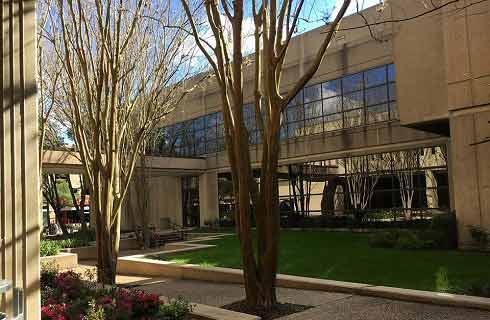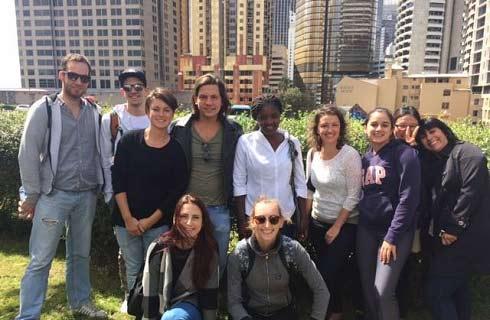国际学生入学条件
Hold a baccalaureate degree from an accredited college or university, or have done work equivalent to that required for such a degree.
Show promise of ability to pursue advanced study and research, as judged by the student’s scholastic record.
Have adequate preparation to enter graduate study in the chosen field. Have at least a 2.75 (2.00=C) undergraduate grade point average.
For review and decision purposes you are required to upload an unofficial copy of your transcript(s) in the application. We require one copy of the scanned transcript from each undergraduate and graduate institution that you attended. Include any transcripts, mark sheets, or grade reports, and any certificates, degrees, diplomas, or statements of graduation or completion from each college or university attended, regardless of the length of attendance, whether or not courses were completed, and whether or not you believe the record will affect your admission or transfer of credit.
Internet Based TOEFL- 75
IELTS - 6.0
Duolingo - 120
Hold a baccalaureate degree from an accredited college or university, or have done work equivalent to that required for such a degree.
Show promise of ability to pursue advanced study and research, as judged by the student’s scholastic record.
Have adequate preparation to enter graduate study in the chosen field. Have at least a 2.75 (2.00=C) undergraduate grade point average.
Applicants to programs in the College of Engineering and Applied Science must have a 3.00 (3.00=B) undergraduate grade point average. Note: applicants who cannot meet this undergraduate standard may still secure regular admission if they have completed 9 semester hours of relevant graduate course work with at least a 3.25 grade point average.
展开
IDP—雅思考试联合主办方

雅思考试总分
6.0
- 雅思总分:6
- 托福网考总分:75
- 托福笔试总分:537
- 其他语言考试:Duolingo - 120
CRICOS代码:
申请截止日期: 请与IDP联系 以获取详细信息。
课程简介
Petrology is the study of rocks - igneous, metamorphic, and sedimentary - and the processes that form and transform them. Mineralogy is the study of the chemistry, crystal structure and physical properties of the mineral constituents of rocks. Both petrological and mineralogical processes are sensitive to environmental conditions, so the compositions of rocks, and the minerals they consist of, are interrogated to answer fundamental questions across a wide range of geological disciplines.<br><br>At CU Boulder, we use petrology to study the formation of volcanoes and their magmatic sources, the evolution of continental crust during the growth and destruction of mountain belts, the genesis of accessory minerals such as REE phosphates in all rock types, the origins of economic concentrations of minerals and petroleum, the make-up of the atmosphere, ocean and life on Earth through time, and the geological processes that occur on other planets. <br><br>Petrological and mineralogical research in the department integrates with other technical disciplines such as geochemistry and geochronology, and has common goals shared with economic resources, astrobiology, geobiology, geodynamics, planetary geology, sedimentology, and structure and tectonics.<br><br>Petrological facilities in the department are well suited for precise and accurate characterization of the compositions and textures of rocks and minerals, and include a new electron microprobe equipped for submicron scale quantitative chemical characterization down to trace element levels and a Raman microscope-spectrometer capable of fast, non-destructive chemical imaging and vibrational characterization of a diversity of material types. These microbeam techniques are supported by a broad array of geochemical instrumentation for quantifying the bulk elemental and isotopic compositions of geological materials.
展开







 预科
预科 奖学金
奖学金 实习机会
实习机会 在校学习
在校学习 跨境学习
跨境学习 校园授课-线上开始
校园授课-线上开始 在线/远程学习
在线/远程学习














 天普大学
天普大学

 东密歇根大学
东密歇根大学

 圣路易斯华盛顿大学
圣路易斯华盛顿大学

 南佛罗里达大学
南佛罗里达大学

 伊利诺伊州立大学
伊利诺伊州立大学

 俄亥俄州立大学哥伦布分校
俄亥俄州立大学哥伦布分校









